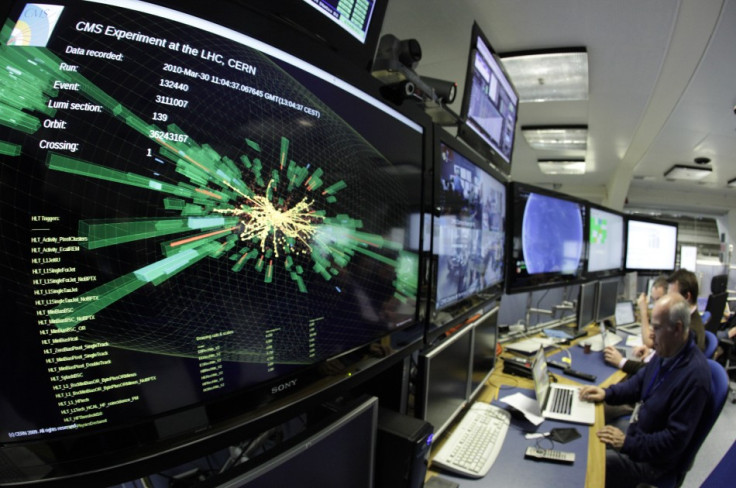Mystery Surrounding the Origin of the Universe Could be Unravelled in Next 6 Months (Photos and Video)

Scientists working at the Large Hadron Collider (LHC) near Geneva will know in 6 months if the god particle exists. The Higgs Boson more commonly known as the God particle is a particle or a set of particles thought to lend mass to other particles.
Finding the "God particle" - a sub-atomic particle that is fundamental to understanding the nature of matter - is so elusive that, physicists quip, it can only be compared to divinity.
We would be able to confirm it by early next year," said Sergio Bertolucci, Director, Research and Computing, European Organization for Nuclear Research (CERN).
Latest results from the world's largest particle accelerator located in a 27-km tunnel under the Swiss-French border have ruled out the existence of the Higgs Boson in the 145 GeV to 466 GeV mass range with 95% certainty, thus narrowing the range of discovery.
Bertolucci said "If the Higgs doesn't exist, scientists will disprove the Standard Model Theory only by 2012-end." "Not finding the Higgs will lead to bigger discoveries. It will change the perception of nature because it might let us discover what dark matter energy is."
He added, "It is always interesting to discover the unknown-unknown as compared to discovering the known-unknown. The next theory will only supersede the previous one." However, if the Higgs Boson exists, scientists will study its properties to understand if it does give mass to elementary particles as laid down in theory."
The existence or non-existence of the God particles can be a key in unravelling the mystery of the existence of the universe.
According to Rolf-Dieter Heuer, Director General of CERN in Switzerland, in the next 6 months, "It should be clear if it was indeed the Big Bang that had triggered it and whether Higgs particles - the first matter to be generated - exist at all."
Check out a video explaining the Higgs particle.
© Copyright IBTimes 2025. All rights reserved.



















